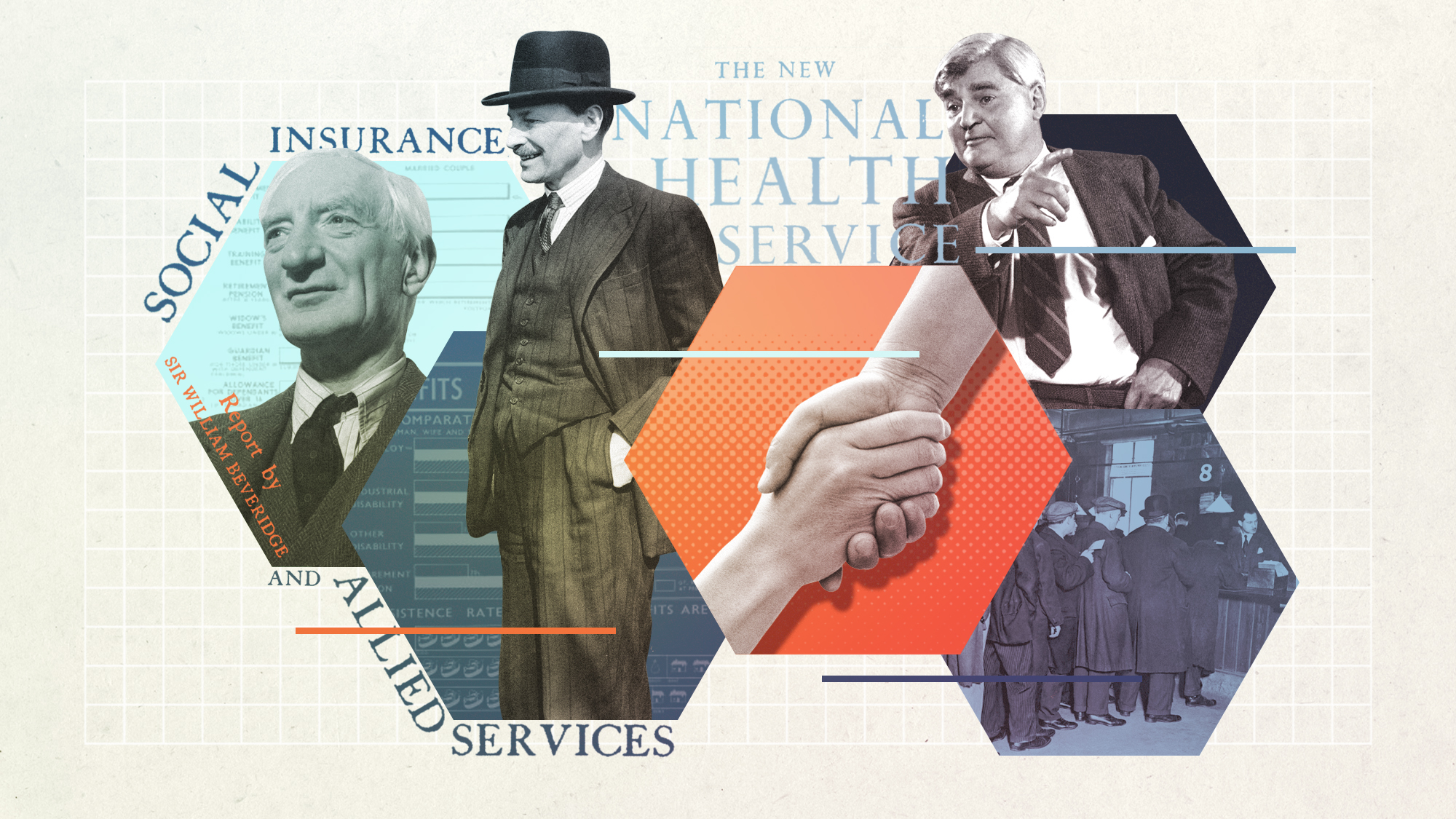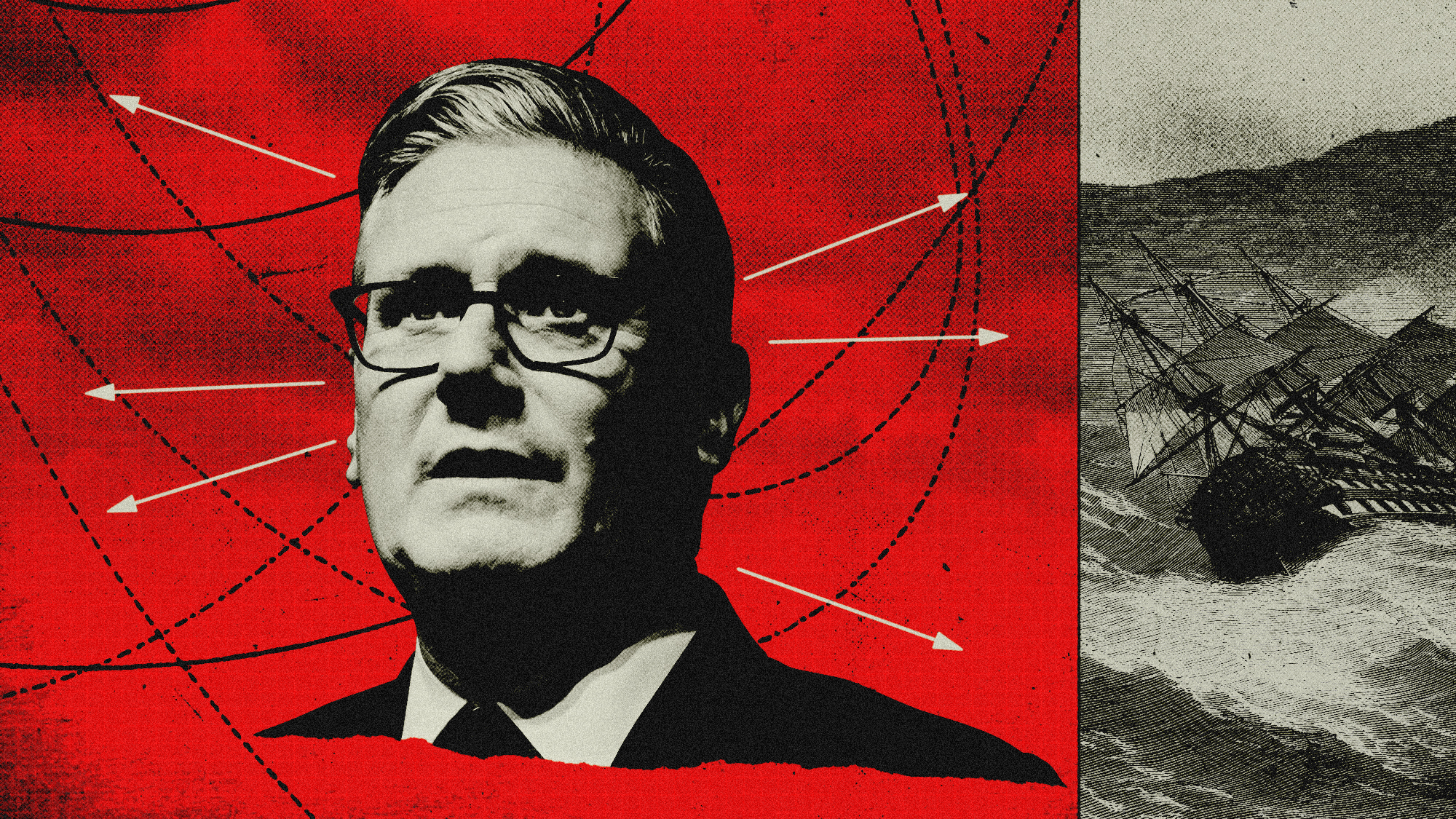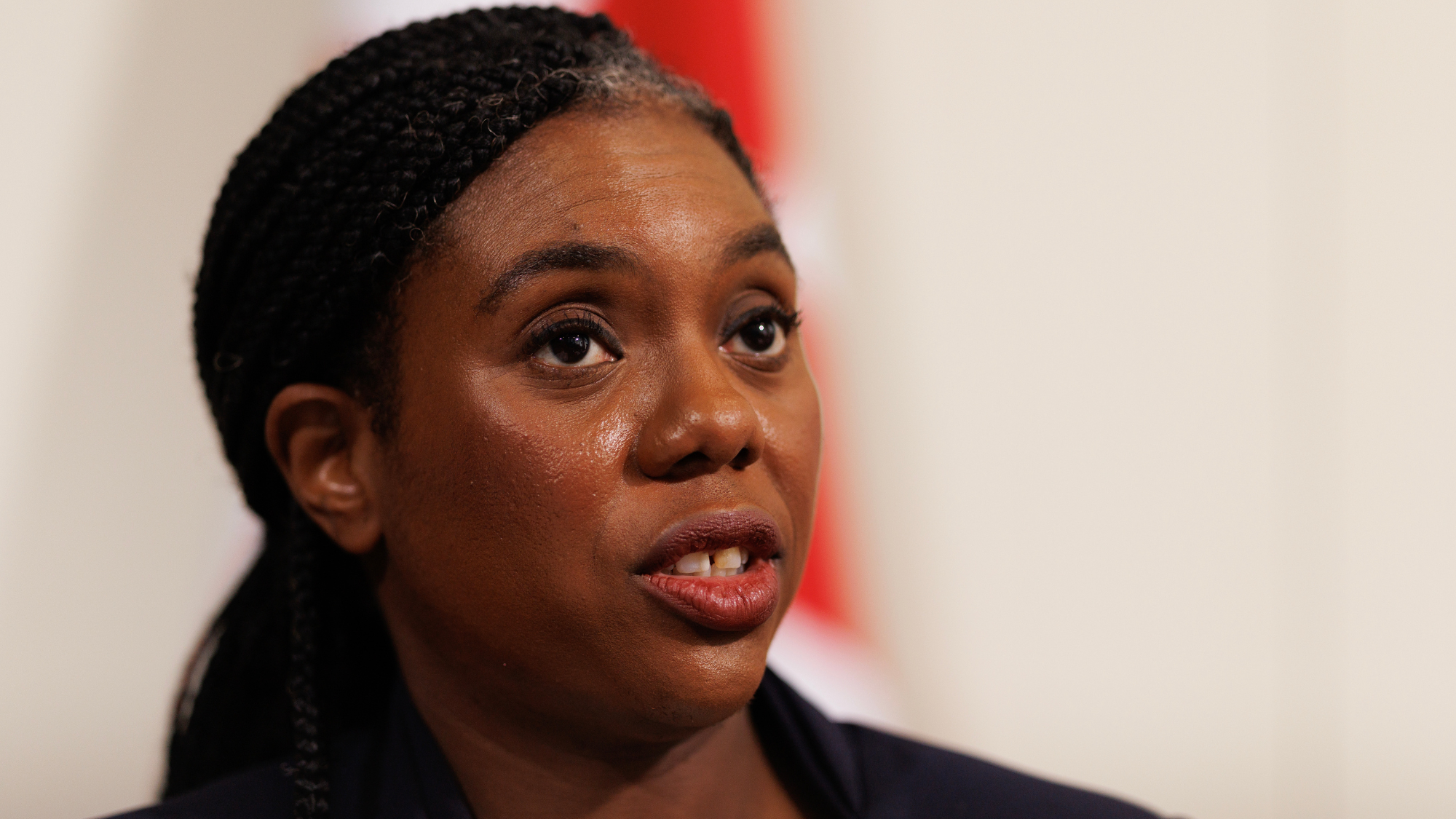The welfare state explained in 60 seconds: ideas that changed the world
This model of provision is the cornerstone of many modern countries

A free daily email with the biggest news stories of the day – and the best features from TheWeek.com
You are now subscribed
Your newsletter sign-up was successful
In this series, The Week looks at the ideas and innovations that permanently changed the way we see the world.
Welfare state in 60 seconds
Welfare state is a concept of government in which the state or a network of social institutions play a central role in protecting and promoting the economic and social well-being of its citizens.
It is based on principles on equality of opportunity, redistribution of wealth, and a public responsibility to provide for those unable to provide for themselves.
The Week
Escape your echo chamber. Get the facts behind the news, plus analysis from multiple perspectives.

Sign up for The Week's Free Newsletters
From our morning news briefing to a weekly Good News Newsletter, get the best of The Week delivered directly to your inbox.
From our morning news briefing to a weekly Good News Newsletter, get the best of The Week delivered directly to your inbox.
In a welfare state, compulsory social insurance – for example, the National Insurance payments in the UK – is taken by the government and used to "provide benefits to persons and families during periods of greatest need", says Encyclopedia Britannica.
Personal taxation may also be considered an aspect of welfare state when the money raised is used to further social justice and equality, and to fund policies that are consistent with the philosophy of welfare state.
State-provided education, health and housing also fall under the scope of the welfare state.
Some governments subscribe to aspects of the welfare state with caveats and modifications. For example, many countries give their citizens benefits and free education, but few offer far-reaching redistribution of wealth.
A free daily email with the biggest news stories of the day – and the best features from TheWeek.com
One of the key challenges of a welfare state is determining the level of provision that the state could and should offer, and funding that provision.
How did it develop?
The idea of welfare state has existed in some form for millennia. The Indian emperor Ashoka, who ruled almost all of the Indian subcontinent from 268BC to 232BC, was probably the first sovereign in the world to establish a welfare state, says The Independent.
The Roman Republic also adopted elements of welfare state in its practices, offering food and water subsidisation programmes, subsidised or free healthcare for the poor, and state pensions, adds economic think-tank Econ+.
The modern welfare state was first established in Imperial Germany in the 1880s by Otto von Bismarck, who aimed to extend the privileges of the better-off to ordinary Germans.
The Swiss welfare state arose at around the same time, and included elementary schooling and housing for children and the elderly.
In the UK, the welfare state was introduced in response to the 1942 Beveridge Report, which exposed widespread poverty among the working classes, and recommended a government-run benefit system to support citizens from "cradle to grave".
Labour won a landslide victory in the 1945 general election by promising to enact the recommendations of the report.
Between 1945 and 1951, Prime Minister Clement Attlee and Health Secretary Aneurin "Nye" Bevan made sweeping changes to state provision in Britain and Northern Ireland.
Labour nationalised the coal industry, railways, utilities and even the Bank of England to help secure its policy of creating a welfare state for all.
The 1944 Butler Act, Family Allowance Act of 1945, 1946 National Insurance Act, and 1948 National Health Act were the legislative foundations of a welfare state that exists to this day in the UK.
Education, healthcare, unemployment and sickness allowances were introduced, funded by redistributive taxation and backed by legislation increasing regulation of industry, food, and housing.
How did it change the world?
The creation of the welfare state established a baseline level of acceptable provision that means key services such as healthcare are still provided by the state today, despite a general shift towards less state assistance.
Put simply, welfare state has guaranteed a base standard of provision for people who are unable to provide for themselves. In the UK, services including education and health remain free, and benefits payments are available to those with no or low wages.
Emperical evidence shows that social contributions considerably reduce poverty in countries where welfare state provision is at least 20% of GDP.
But with a growing – and ageing – global population, the welfare state has also put pressure on countries’ coffers. Memos from the UK Department for Work and Pensions that were leaked in 2014 described the rising cost of benefits as "one of the largest fiscal risks currently facing the government".
-
 Political cartoons for February 15
Political cartoons for February 15Cartoons Sunday's political cartoons include political ventriloquism, Europe in the middle, and more
-
 The broken water companies failing England and Wales
The broken water companies failing England and WalesExplainer With rising bills, deteriorating river health and a lack of investment, regulators face an uphill battle to stabilise the industry
-
 A thrilling foodie city in northern Japan
A thrilling foodie city in northern JapanThe Week Recommends The food scene here is ‘unspoilt’ and ‘fun’
-
 How corrupt is the UK?
How corrupt is the UK?The Explainer Decline in standards ‘risks becoming a defining feature of our political culture’ as Britain falls to lowest ever score on global index
-
 ‘Being a “hot” country does not make you a good country’
‘Being a “hot” country does not make you a good country’Instant Opinion Opinion, comment and editorials of the day
-
 The high street: Britain’s next political battleground?
The high street: Britain’s next political battleground?In the Spotlight Mass closure of shops and influx of organised crime are fuelling voter anger, and offer an opening for Reform UK
-
 Is a Reform-Tory pact becoming more likely?
Is a Reform-Tory pact becoming more likely?Today’s Big Question Nigel Farage’s party is ahead in the polls but still falls well short of a Commons majority, while Conservatives are still losing MPs to Reform
-
 Taking the low road: why the SNP is still standing strong
Taking the low road: why the SNP is still standing strongTalking Point Party is on track for a fifth consecutive victory in May’s Holyrood election, despite controversies and plummeting support
-
 How should Keir Starmer right the Labour ship?
How should Keir Starmer right the Labour ship?Today's Big Question Rightward shift on immigration and welfare not the answer to 'haemorrhaging of hope, trust and electoral support'
-
 Sickness benefits: an unaffordable burden?
Sickness benefits: an unaffordable burden?Talking Point A welfare bill 'debacle' caused by 'sickfluencers' who are beating the system
-
 What difference will the 'historic' UK-Germany treaty make?
What difference will the 'historic' UK-Germany treaty make?Today's Big Question Europe's two biggest economies sign first treaty since WWII, underscoring 'triangle alliance' with France amid growing Russian threat and US distance